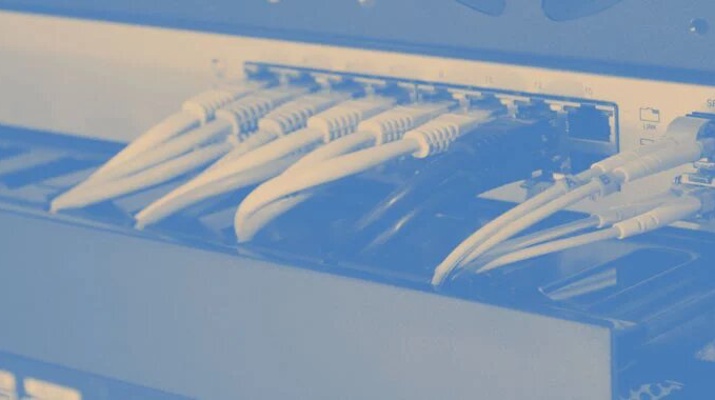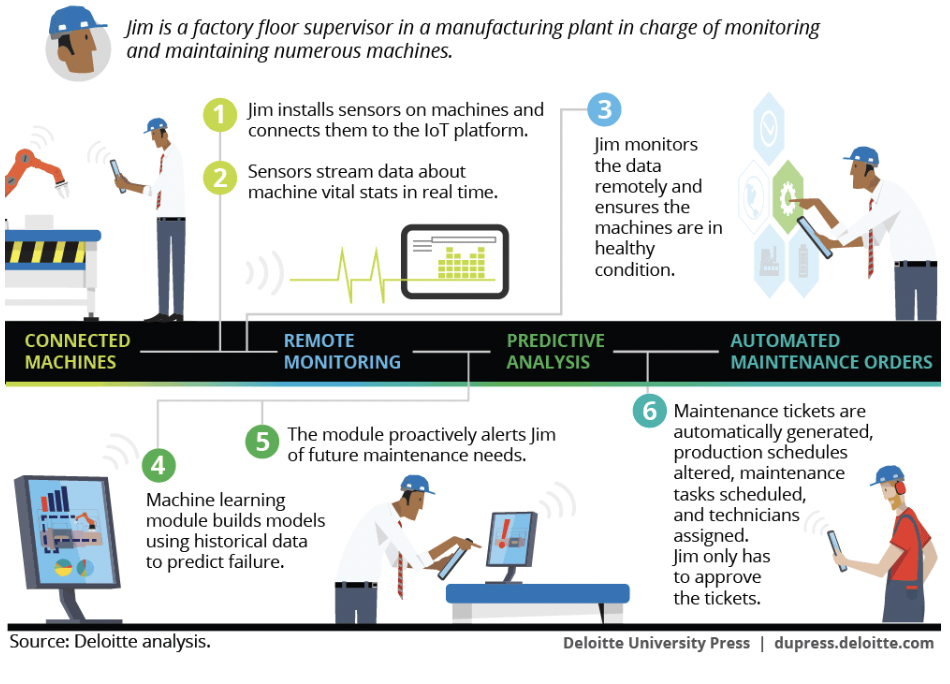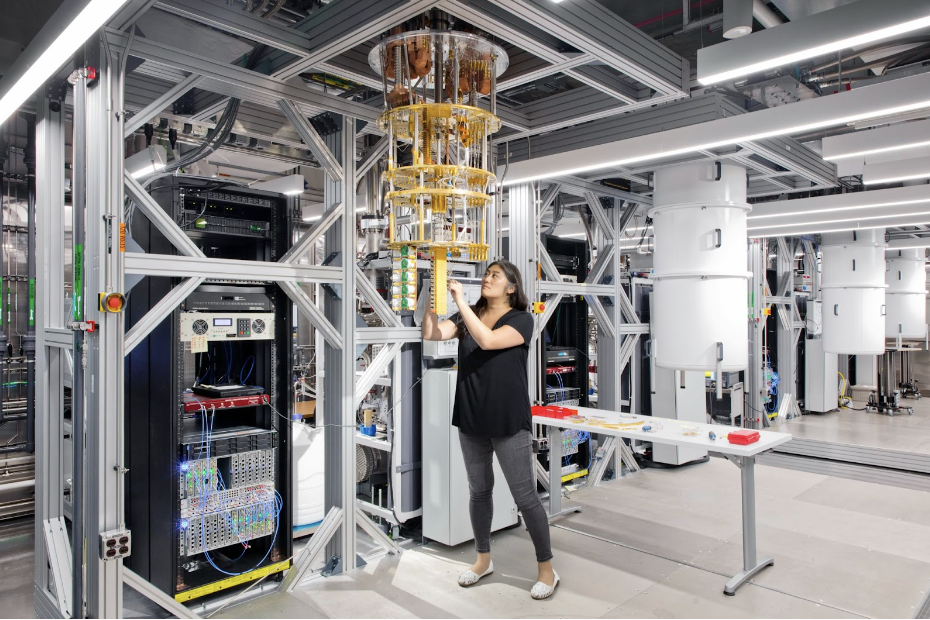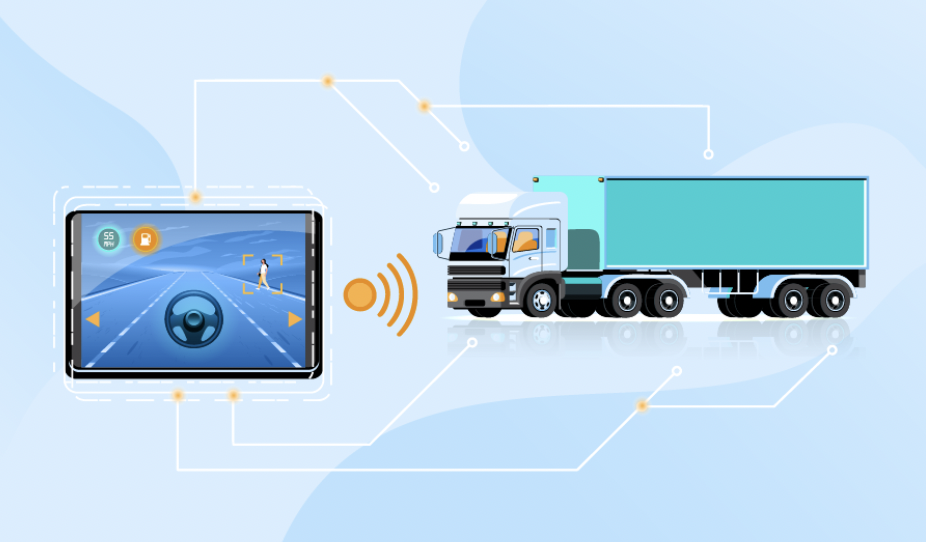Why Does IoT Matter to Businesses?

Why Does IoT Matter to Businesses?
IoT enables accelerated business decision-making as well as increased technological efficiencies that simply were not possible just a few short years ago. Businesses should stay appraised of how IoT is changing their industries to jump in on this trend when the time is right.
The Internet of Things (IoT) is huge! You may be using IoT devices right now, even if you are unaware.
To say that it's a big market right now doesn't give it justice. Experts acknowledge that the Internet of Things spans three main categories — commercial, industrial, and consumer.
You can't deny that IoT has become integral to modern living, from your smart home appliances to the motion sensors on your vehicle. Intelligent technology has trickled down to almost every aspect of business operations.
The question you may have on your mind right now is, why does IoT matter to businesses? How can you utilize it to your advantage?
What is IoT?
IoT is a vast interconnected system of physical gadgets or devices with software or embedded sensors. The technology allows people to connect, exchange, and track crucial data across the internet — hence, the "Internet of Things."
Kevin Ashton, a British computer scientist, first coined the term "Internet of Things" in 1999 while working for Procter & Gamble, an Ohio-based consumer goods company.
According to Ashton, Radio Frequency Identification (RFID) was essential to the eventual acceleration of IoT. The term has been around for a while, but related technology traces back to the 1830s or 1840s — when the telegraph started providing direct communications.
The Scale of the IoT Industry
Statistics show that the global data volume of IoT connections is expected to rise to 79.4 zettabytes by 2025. That's an astronomical jump from 2019 figures of approximately 13.6 zettabytes.
If that data doesn't look massive, one zettabyte equals one sextillion bytes. Reports found that the overall number of connected IoT devices only grew by 8% to 12.2 billion in 2021, a notable slowdown from preceding years.
Factors such as the global chip shortage and the shipping crisis affected the growth of the IoT market, but many experts believe it's already on a brilliant recovery road.
Despite the challenges, the sentiment for the general future of IoT remains positive as more businesses and industries adopt more digital technologies.
Why Should IoT Matter to Businesses?
Because of their reliability and capabilities, IoT devices can bring a lot to the table for businesses. It's a no-brainer that companies always look for ways to gain more profits while lessening problems and costs.
Of course, old-school business models can still work, but the value provided by new technologies is unmatched. Here are the biggest pros of IoT for businesses:
1. Cost Reduction and Trimming Downtime
The manufacturing industry is one of the most significant sectors using IoT for cost reduction.
Research conducted by Deloitte discovered that by using smart predictive maintenance (PdM), manufacturing companies could critically lower their maintenance time by 20-50% and grow equipment uptime by 10-20%.

Source: Deloitte
Aside from eliminating those, IoT also enables companies to reduce labor costs by improving employee outputs.
2. Boost in Productivity
In line with what's mentioned above, IoT notably helps companies become more competitive by stamping out repetitive tasks.
IoT can be applied in the workplace to ease management processes and improve workflow by utilizing resources like Wi-Fi, copiers, and printers and optimizing office layouts.
Big data analytics with IoT may also provide a broad view of staff productivity and make it easier to identify which duties are working and disrupting your company's performance.
3. Advance Customer Service
Because it is still relatively new, IoT technology has mostly affected back-end operations. However, with the emergence of modern IoT, omnichannel tactics have revolutionized how customers interact with organizations.
Faster turn-around times and direct communication with customers help boost customer satisfaction rates.
IoT devices also gather customer feedback and understand preferences. Data that is collected allow business owners to better their decision-making processes.
4. Asset, Traffic, and Data Monitoring
Before IoT, companies used manual and siloed systems, handwriting, and individually checking endless sheets to check their inventories. This gave room for human error, which can be more time-consuming and costly.
IoT connects digital and physical by transmitting and sharing data via the internet. Connected devices may interact automatically and deliver information to the appropriate location without human involvement.
The automatic scheduling and monitoring made possible by IoT networked sensors allow for greater resource efficiency.
A company operation often stands to gain more from IoT deployment the more components there are in the process. As a result, the supply chain sector has been the IoT's greatest adopter yet.
5. Reinforcing Security and Minimizing Risks
Lastly, one of the biggest challenges faced by any company is security. With IoT, business owners can ensure safer working conditions, keep up with regulatory compliances, and protect crucial data.
IoT systems like surveillance cameras, embedded sensors, and wearables can swiftly ease concerns about workforce safety, thefts, and even corporate bugging.
What Industries Use IoT the Most
The very nature of IoT makes it a must to improve business operations. It's become a phenomenon in the market.
Almost every sector in the world uses IoT, but there are 8 industries most leverage the technology:
- Manufacturing
- Retail
- Agriculture
- Energy
- Transportation
- Finance
- Healthcare
- Hospitality

Source: IBM
5 Common IoT Applications Used Today
Amazon and Oracle are just some of the titans in the industry, but the average person and small businesses can harness IoT's power.
We often hear about new smart devices coming out every year. Here are the everyday gadgets or applications that we use for personal and business:
Let get more into detail about how each technology gets used in the field.
1. Wearable Gadgets
Seeing the word "smart" on product names should be a massive indication for you to know that it's an IoT device. By definition, it's a category of electric appliances that can be worn, embedded into clothes, or even tattooed directly on the skin.
For example, smartwatches that track activity, such as the Apple Watch and Samsung's Galaxy Smartwatch, have risen to prominence.
Smart tattoos are also starting to pick up steam and be explored by experts in the medical science field. No, it's not meant to track your location but to monitor health — such as heart activity and disorders.
A study by Salesforce found that 79% of companies that utilize wearable technologies for business operations believe that the adoption has dramatically contributed to their success. To top that off, 86% of those surveyed said they would ramp up their investments in wearable technology.
2. Smart Home or Office Devices
IoT is present both in our homes and workplaces. To be clear, Wi-Fi isn't an IoT device; it's a piece that makes up IoT systems.
Examples of actual IoT devices used in the office space are smart thermostats, intelligent lighting, and innovative asset monitoring structures.
Investing more in workplace technology significantly improves efficiency and employee productivity. As the saying goes, work smarter and not harder. Helpful gadgets encourage your employees to take advantage to streamline their processes.
3. Healthcare
The healthcare industry has coined a more specific term for its fast-growing bracket — the "Internet of Medical Things (IoMT)."
A report published by Fortune Business Insights predicts that the IoMT market size is bound to grow to $176.82 billion by 2026. The accelerating incorporation of next-generation healthcare facilities and health-monitoring gadgets fuels that growth.
Examples of IoMT gadgets are:
- Connected inhalers
- Automated insulin delivery systems
- Automated medication dispensers
4. Autonomous Driving Systems
Elon Musk's Tesla isn't the only smart car on the market; self-driving cars and IoT in the automotive industry have skyrocketed (relatively speaking) in recent years.
From the sensors you use when parking to the GPS trackers that help you navigate, vehicles are turning smarter by the day.

Source: ScienceSoft
It's not just for personal use; companies like DHL, a German logistics and courier company, launched their DHL SmarTrucking solution a few years ago.
Their goal was to reduce transit times by 50% and allow customers to track their parcels in real time. The IoT sensors they adopted sent notifications to customers and the operations team via a mobile app and a portal.
5. Smart Farming
The agriculture sector has become more technology-driven, using more precision irrigations, automated greenhouses, and climate monitoring devices. This adaption led to the advancement of "smart agriculture," a relatively new term, helping farmers make wiser calls and boost their profits.
The very goal of smart agriculture is to amplify the quantity and improve the quality of crops while making it easier for human labor.
Studies reveal that smart farming helps save water consumption, increase crop yield, and effectively minimize losses caused by human errors.
The Future of IoT and Key Takeaways
The market for the Internet of Things is bright as ever, with limitless potential.
Because of its endless perks, the question is not "why does IoT matter to businesses?" but "how should your business embrace the technology?"
Research from J.P. Morgan shows that the chip shortage era is drawing to its end, signaling further optimism for the future of IoT networks and innovations.
Smartphone advancements and artificial intelligence breakthroughs in machine learning propel the new wave of IoT forward.
Connect with the top IoT service providers immediately to integrate the best IoT solutions for your business.
